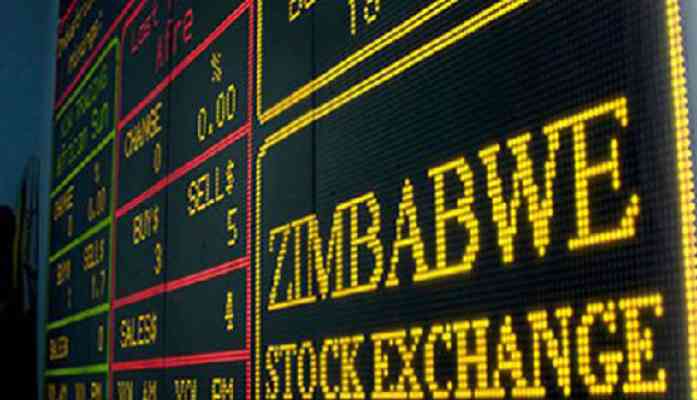
In May, the Zimbabwe Stock Exchange (ZSE) rebounded, with market capitalisation surging by 3%, reversing March’s 7% slump. The All-Share Index gained 2,55%, largely supported by a 3,71% rise in the Medium Cap Index. The Top 10 Index grew by 2,16%, while the Top 15 Index advanced by 1,99%. In contrast, the Small Cap Index was relatively flat, ending the month at 100.11.
Monthly turnover more than doubled, reaching ZiG 601 million compared to April’s ZiG 268 million. Econet led trading activity with ZiG 356 million in turnover, followed by Delta with ZiG 136 million. This marked a sharp increase from April, when Econet and Delta recorded ZiG 83 million and ZiG 89 million, respectively. Together, the two stocks contributed 82% of May’s turnover, a rise from 64% in April.
The market breadth was positive in May, with 18 gainers outpacing 14 losers. However, the losers included notable blue chip stocks. Econet fell 10%, while OK Zimbabwe declined by 11%. Econet recently released its FY25 results, though any material impact on its share price is yet to be seen. OK Zimbabwe’s drop was largely driven by a circular issued by the company, revealing that its US$30 million capital raise is at an advanced stage. An extraordinary general meeting (EGM) is scheduled this month for shareholders to deliberate and approve the proposed funding, which is expected to be a mix of a rights issue, private placement, and debt financing. Notably, some major shareholders are reportedly advocating for a new board appointment as a condition for supporting the capital raise, aimed at revitalising the struggling retailer.
Delta Corporation remained relatively stable, slipping just 0,19% during the month. The beverages giant also released its FY25 financials, reporting a mixed performance, with overall volumes down 3%. However, the impact on the share price was muted, as the stock was already trading below its historical average. On the upside, the mid cap segment produced top performers.
ZHL surged 82%, while Proplastics jumped 59%. On the other end of the spectrum, Zimpapers was the month’s worst performer, plummeting 44%.
Tight liquidity conditions, largely due to the limited supply of ZiG, continue to exert downward pressure on the Zimbabwe Stock Exchange (ZSE). As a result, share prices are increasingly decoupling from underlying company fundamentals, with many blue chip stocks trading well below their intrinsic value. The constrained availability of ZiG, coupled with broader macroeconomic challenges, has dampened trading activity, leaving minimal room for short term recovery. Amid these headwinds, Securities Lending and Borrowing (SLB), currently operating within a regulatory sandbox offers a promising avenue to rejuvenate Zimbabwe’s capital markets.
In contrast, the Victoria Falls Stock Exchange (VFEX) ended May on a weaker note, with market capitalisation declining by 6%, erasing April’s 9,39% gain. Monthly turnover edged down slightly to US$3,7 million from US$3,9 million in the previous month. The top contributors to April’s trading activity were Innscor with US$1,1 million, followed by Padenga at US$927 597, and Axia with US$885 987.
Padenga’s momentum reversed in May, with the stock losing 29% of its value. This pullback may reflect a correction from its peak, as the counter had surprisingly climbed to become the second largest counter by market weight on the VFEX, overtaking Innscor - a shift that had caught many market participants off guard.
- Inaugural Zim investor indaba highlights
- Stop clinging to decaying state firms
- ZB explores options to tackle inflation
- Zim operations drive FMB Capital
Keep Reading
Eagle REIT was listed on VFEX on Friday, 16 May 2025, with trading commencing the following Monday, 19 May. While it's still early to assess its trading performance, the key question on investors' minds is whether REIT will deliver capital appreciation, consistent dividends, or ideally both, positioning itself as an attractive option for value seeking investors. However, most assets under the Eagle REIT are still under development, and income generated from completed properties is expected to be reinvested into the fund to support ongoing projects. As a result, shareholders should be prepared for little to no immediate dividend payouts in the short term.
Historically, the ZSE has served as a safe haven for excess local currency, with many stocks trading above their intrinsic value during liquidity-fueled bull runs. However, recent policy measures aimed at tightening liquidity have significantly impacted market performance. Investor demand has weakened, and prices have declined sharply. In 2024, the ZSE ended the year in negative territory, with a market capitalisation of US$1,7 billion, despite experiencing two notable rallies: one at the end of Q1 (US$3,6 billion) and another in Q2 extending into July (US$4,2 billion). Currently, the entire bourse has a market cap of approximately US$1,5 billion, a further decline from last year.
Buying shares now is akin to a basic business principle, purchasing undervalued assets with the intention of selling at a higher price. While short term price rebounds may be limited, patient investors with a long-term horizon could stand to benefit significantly once the market re-rates.
Taimo is an investment analyst with a talent for writing about equities and addressing topical issues in local capital markets. He holds a First Class Degree in Finance and Banking from the University of Zimbabwe. He is an active member of the Investment Professionals of Zimbabwe community, pursuing the Chartered Financial Analyst charter designation.






